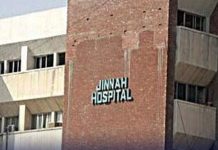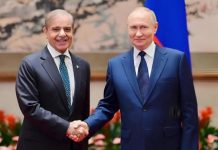DNA
DUSHANBE: Logistics and Diplomacy in the “Extended Central Asia” 4th edition Seminar was launched here on Monday in Dushanbe with French Ambassador Ifeac Bichkek AXELCIUM. with fantastic speakers as Max EE Asian Development Bank (ADB) Sulton Rahimzoda IFAS Parviz Mullojonov Faredun Hodizada Mario Apostolov UNECE Public-Private Partnerships Farkhunda Naderi Leila Delovarova Zhulduz Baizakova al-farabi kaznu for only our morning session.
The seminar took place in the framework of the Dialogue Eurasiatique du Havre (Eurasian Dialogue of Le Havre. The driving force of this Dialogue is the think-tank SEFACIL from Le Havre led by Mr. YANN ALIX .
The forum debated about trading partnerships with challenges, issues, and constraints which have to be solved, especially reducing too high shipment overall cost, cutting longer border-crossing time, lack of ability to implement & perform some efficient logistics activities, and increasing financing infrastructure programmes & projects, strengthening regional cooperation by building & consolidating the trust between landlocked Central Asia countries in order to gain benefits and so on.
Joint vision and innovative regional logistics facilities must be encouraged to support an “enlarged Central Asia” transportation network to turn landlocked countries into better land linked trade opportunities. Same purpose has been adressed as well about water and hydropower potential of the sub region, especially taking into account severe climate change consequences over population.
Participants from Afghanistan advocated to include logistics as a pivotal element to support political and economical connectivity. Due to the geopolitical situation in Ukraine, we together must speed-up the Trans Afghanistan Pipeline, The Trans Afghan-Pakistan Transportation Corridor, railways construction of new lines, various ports’ connexion to Gwadar Karachi, and even India Iran considering several other logistics solutions. It costs actually more or less 1,500 US$ to carry a container from Karachi to Tashkent.
Uniting regional countries through an integrated transportation grid is a mandatory condition to secure Central Asia and accelerate social and economic sustainable development.
The Organization of Turkic States is as well debated today to deal with political stability, energy cooperation and “simplified Customs Corridor” to link Central Asia and South Eastern Europe through the strategic Trans-Caspian International Transport Route (TITR) using ports of Aktau, Baku, Batumi, Poti and finally Istanbul which still not very much cost & time efficient. This Middle Corridor is not significant but the demand is growing considering new logistics connectivity and geopolitical current constraints. This is an alternative route but transfers from rail to ship to rail and road make the process complicated even if huge investments are to come, especially motivated by Turkish authorities. The port of Aktau for instance appears already as a real bottleneck for Central Asia NRJ potential exportation (Oil & Gaz).

















